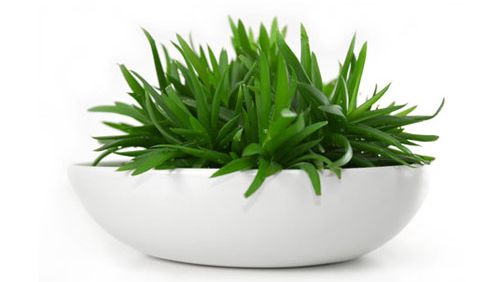How to Care for Your Houseplants
How to Care for Your Houseplants

They're lovely and delicate, they breathe life into your otherwise austere apartment, and they don't require boarding when you go on vacation. They are your houseplants, and with the right type of care, they can provide you with years of natural beauty.
While easier to care for than a dog or cat, houseplants still need careful attention to be their most beautiful and healthy. And though it's easy to kill them, it's practically as easy to keep them going, even if you don't have a green thumb.
The most important rule — and the one that's most often broken — is do not over-water. Plants need water, true, but over-watering kills the plant's roots, which, in turn, wilts the leaves and ultimately drowns the plant.
For most plants, make sure you wait until the soil dries out between waterings. If you feel like you need some help with this, you can use a watering stick, which measures the moistness of the soil, or you can use automatic waterers, like the Aqua globe.
On the opposite end, just as over-watering is detrimental to a plant's health, so is under-watering. If plants don't get enough water, they turn brown and brittle, and eventually die. The good news, though, is that an under-watered plant can come back to life with a little TLC. To revive a plant that looks like it's beyond repair, saturate the soil with water and a small amount of plant food. Wait until the soil is dry — which should take a couple of days, depending on the plant — and water again.
Even the best-cared-for plants will eventually have a wilted leaf or two. When this happens, your plant needs pruning. Keep your plants looking lovely and healthy by snip dead growths at their base with a pair of sharp scissors.
The most important thing you can do for your plants is learning about the type of care they need. Each type of plant has its unique prescription of maintenance, so talk to employees at your local greenhouse or buy a book to help you make informed choices about your plants' care.
Get exclusive access to fashion and beauty trends, hot-off-the-press celebrity news, and more.